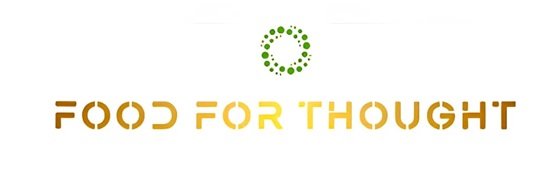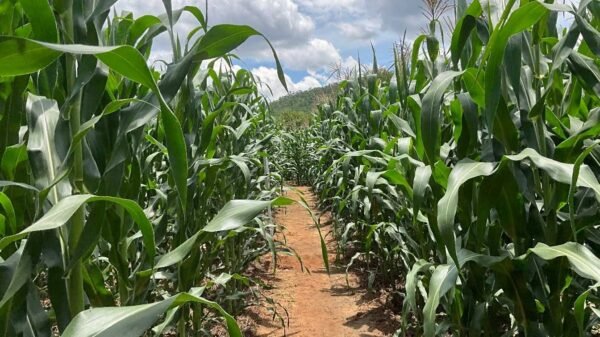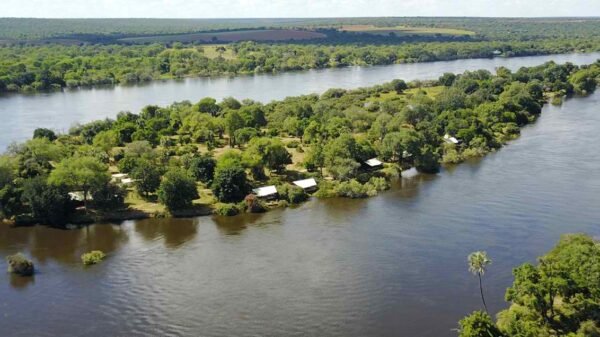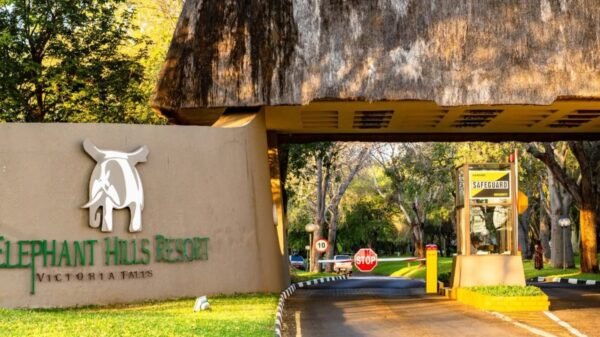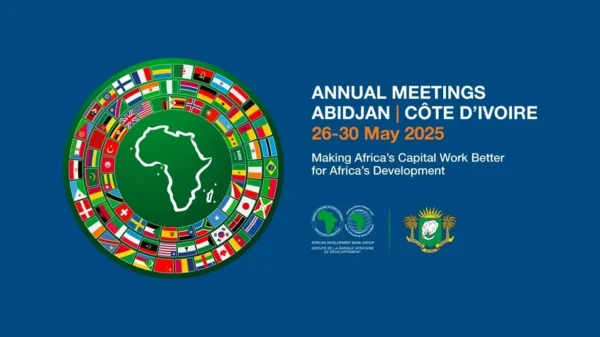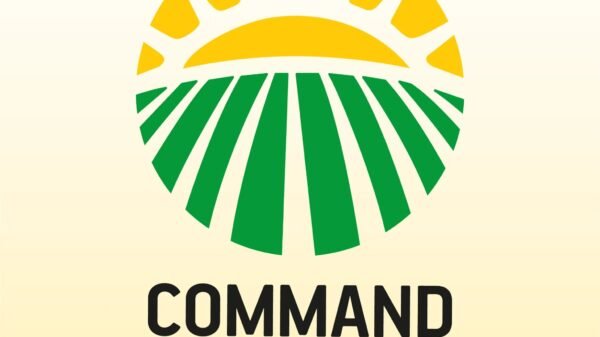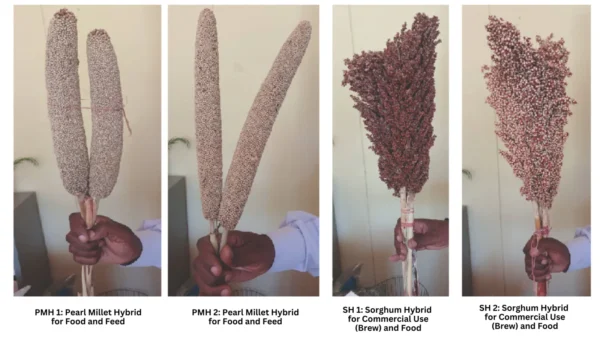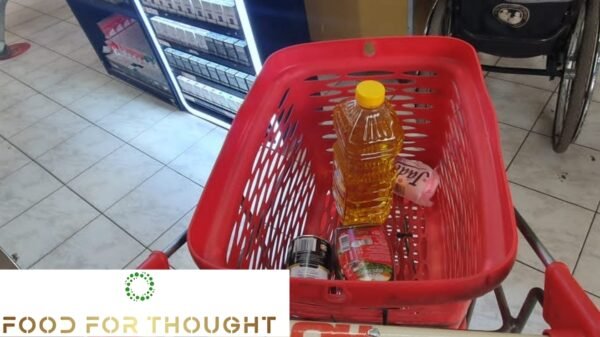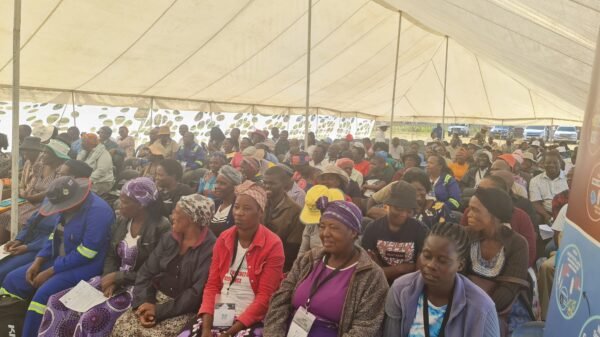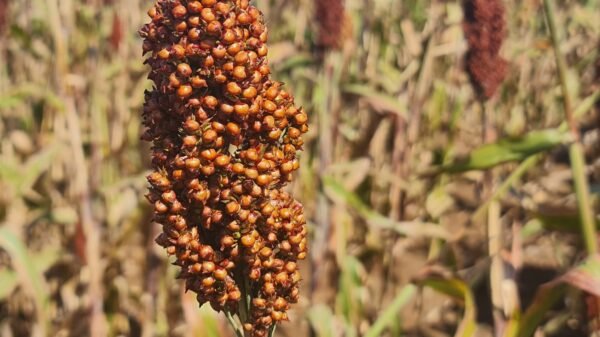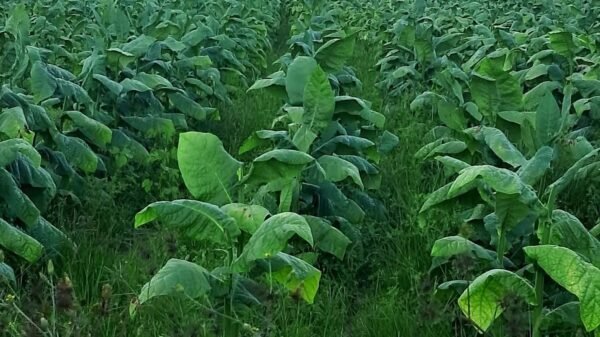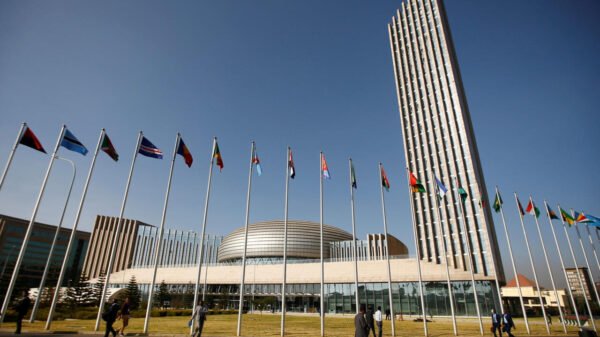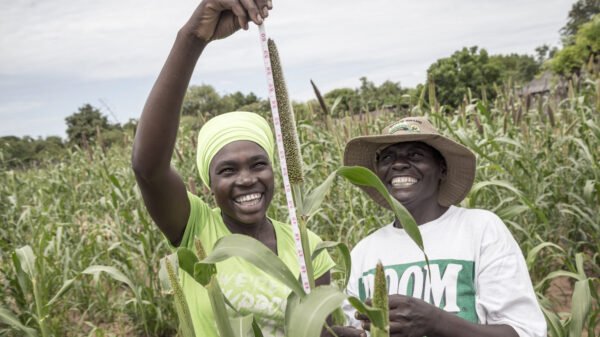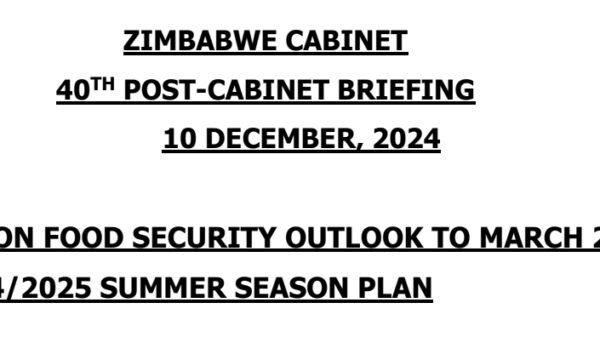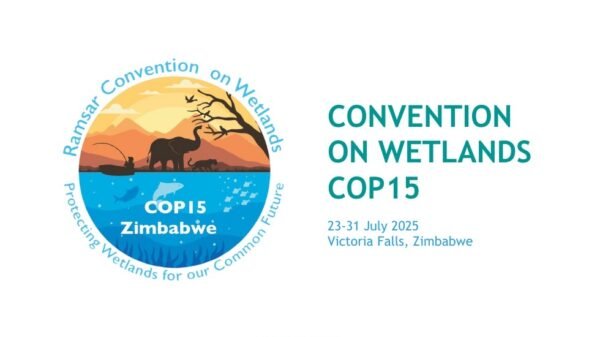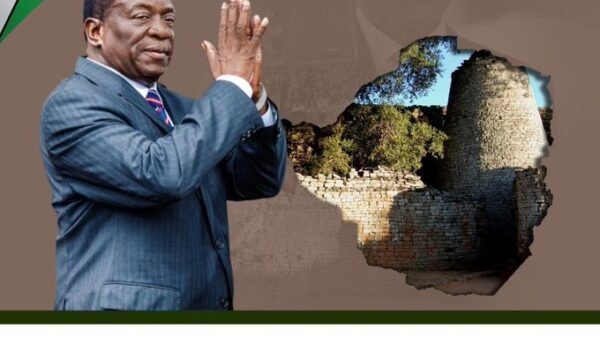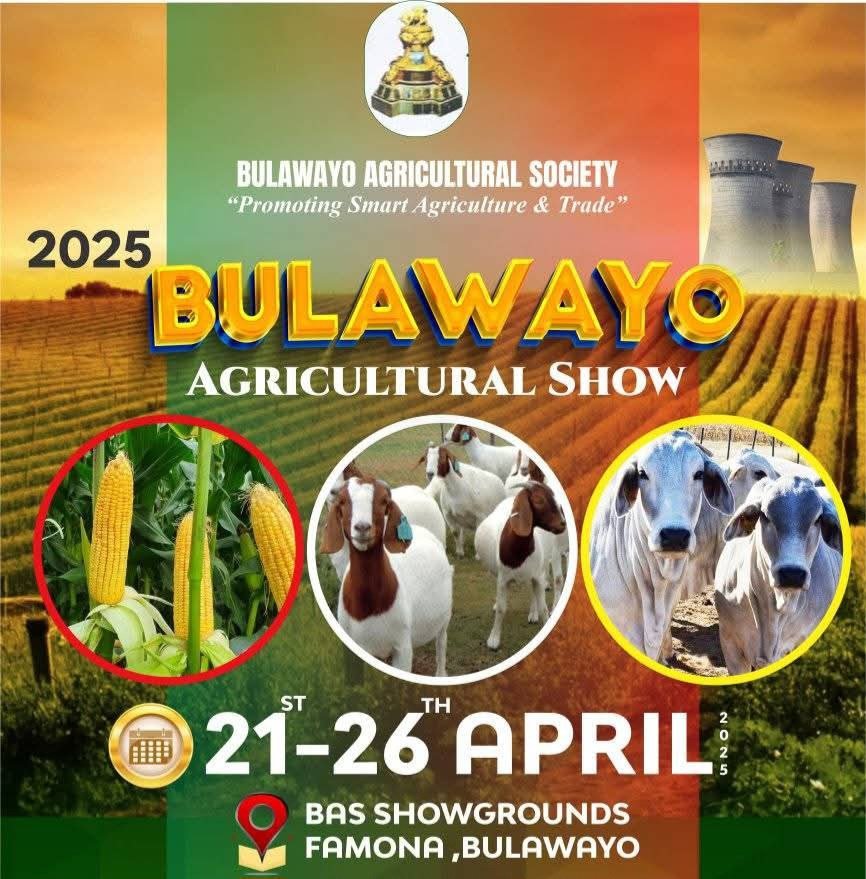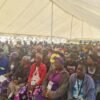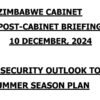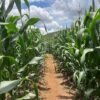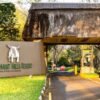THE 2025 Bulawayo Agricultural Society (BAS) Show, being held concurrently with the Zimbabwe International Trade Fair (ZITF) from April 21–26 at the showgrounds in Famona, is a significant event for Zimbabwe’s agricultural and economic landscape.
This year’s theme, “Promoting Smart Agriculture & Trade,” underscores the integration of innovative technologies and sustainable practices to enhance agricultural productivity and trade, aligning with Zimbabwe’s broader development goals.
Significance of Bulawayo Show
Celebrating 118 years of existence, the Bulawayo Agricultural Society show is a platform for innovation and networking.
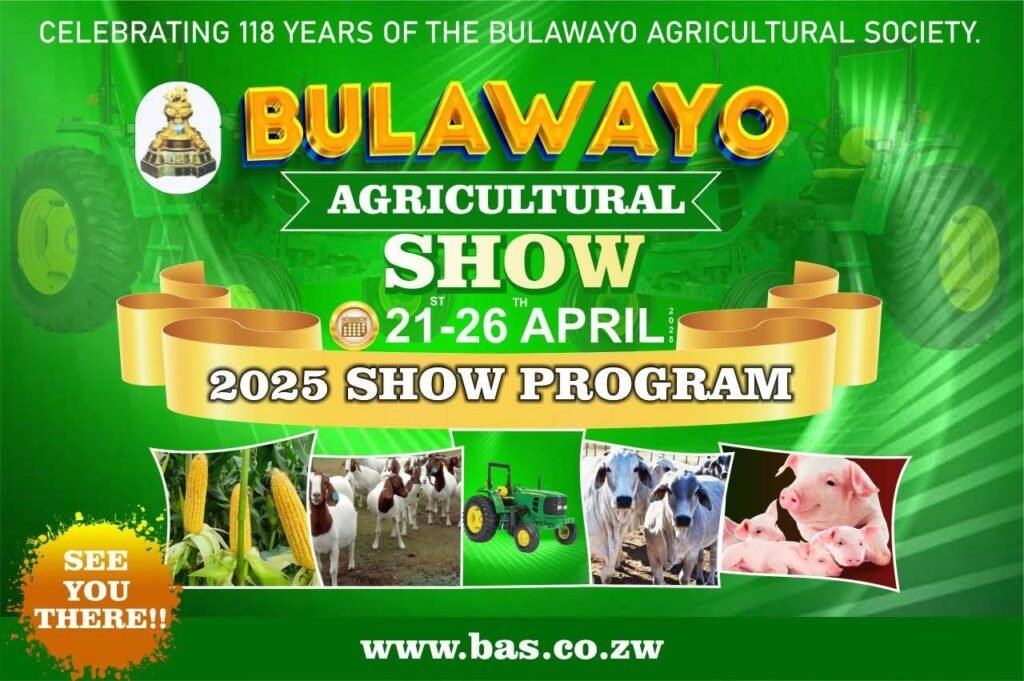
The BAS Show, as part of the ZITF, serves as a critical platform for showcasing advancements in agriculture, a cornerstone of Zimbabwe’s economy. It brings together local and international stakeholders, including farmers, agribusinesses, policymakers, and development partners like the Food and Agriculture Organisation (FAO) of the United Nations, to exchange ideas, display new technologies, and forge partnerships.
With ZITF 2025 fully booked and hosting 596 exhibitors from 28 countries, the Bulawayo Show amplifies opportunities for business-to-business interactions and market expansion, particularly for small and medium enterprises (SMEs) in agriculture.
The Bulawayo Agricultural Society is meant to complement the ZITF’s multi-sectoral focus.
The wider context matters. While the ZITF is a multi-sectoral trade fair covering industries like mining, manufacturing, and information communication technology, the Bulawayo Show maintains a specialised focus on agriculture. This distinction ensures that the show complements rather than competes with the ZITF, offering a dedicated space for agricultural stakeholders to address sector-specific challenges and opportunities.
The event’s alignment with the ZITF enhances its visibility, drawing a diverse audience that includes regional leaders like Mozambique’s President Daniel Chapo, who will officially open ZITF 2025, signalling strong diplomatic and economic ties.
The show contributes to socio-economic progress by emphasising on innovation, entrepreneurship and equitable development. By promoting agricultural advancements, it is designed to support job creation, particularly for youths and women, as seen in the employment opportunities generated during ZITF events.
Bulawayo comes alive
Bulawayo’s role as the host city reinforces its yesteryear status as a hub for regional trade and industrial innovation, aligning with the city’s development agenda to become a “Smart and Transformative City” by 2025. Due to Zimbabwe’s prolonged economic decline, Bulawayo has suffered massive de-industrialisation in the past two decades.
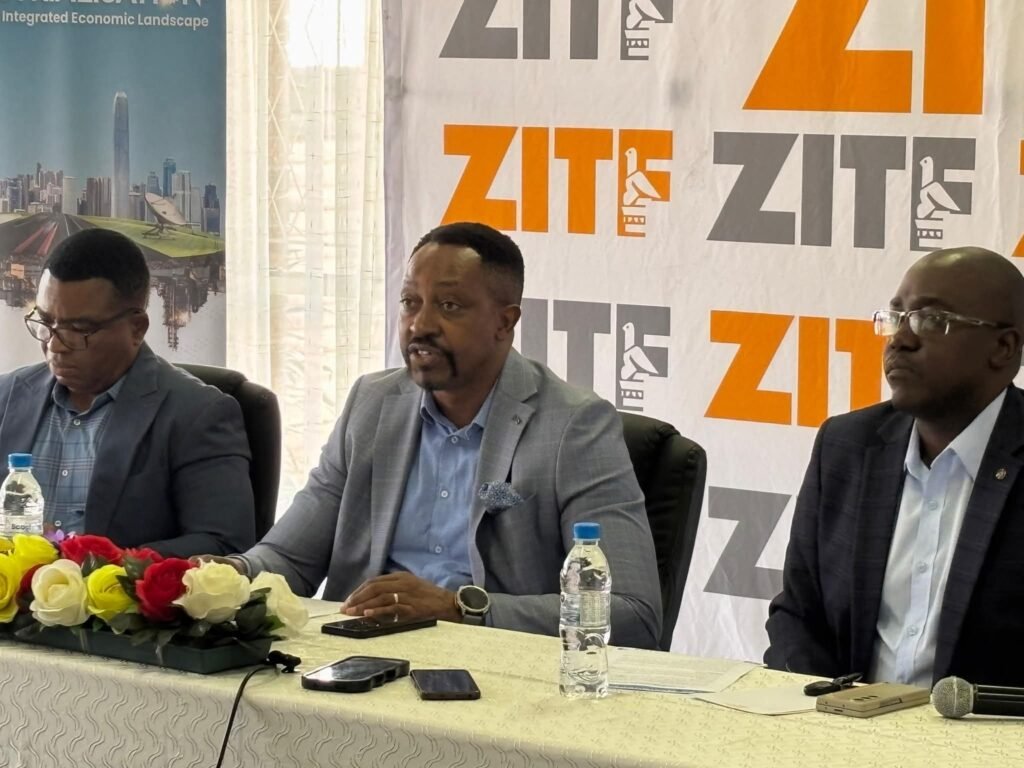
ZITF Company board chairperson Busisa Moyo (centre) addresses a Press briefing ahead of ZITF 2025.
The Bulawayo Agricultural Show’s integration with ZITF 2025, marking the Trade Fair’s 65th anniversary, highlights Zimbabwe’s quest for resilience in maintaining a premier trade platform despite economic challenges. However, the ZITF over the years has lost its traditional gloss. It is not easy to showcase a country ruined by infrastructure decay, de-industrialisation and instability.
Promoting smart agric and trade
The theme “Promoting Smart Agriculture & Trade” reflects a strategic vision to modernise agriculture and enhance its integration into global trade networks through technology, sustainability, and efficiency.
Smart agriculture involves the use of technologies like precision farming, Internet of Things, drones, and Global Navigation Satellite System to optimise crop yields, reduce resource waste, and mitigate climate risks. The Bulawayo Show’s emphasis on these innovations aligns with global trends toward sustainable farming, as seen in previous ZITF exhibitions showcasing hydroponic farming and advanced agricultural machinery. But the show should not be reduced to a pointless talkshow; agricultural technology and innovation must benefit farmers on the ground.
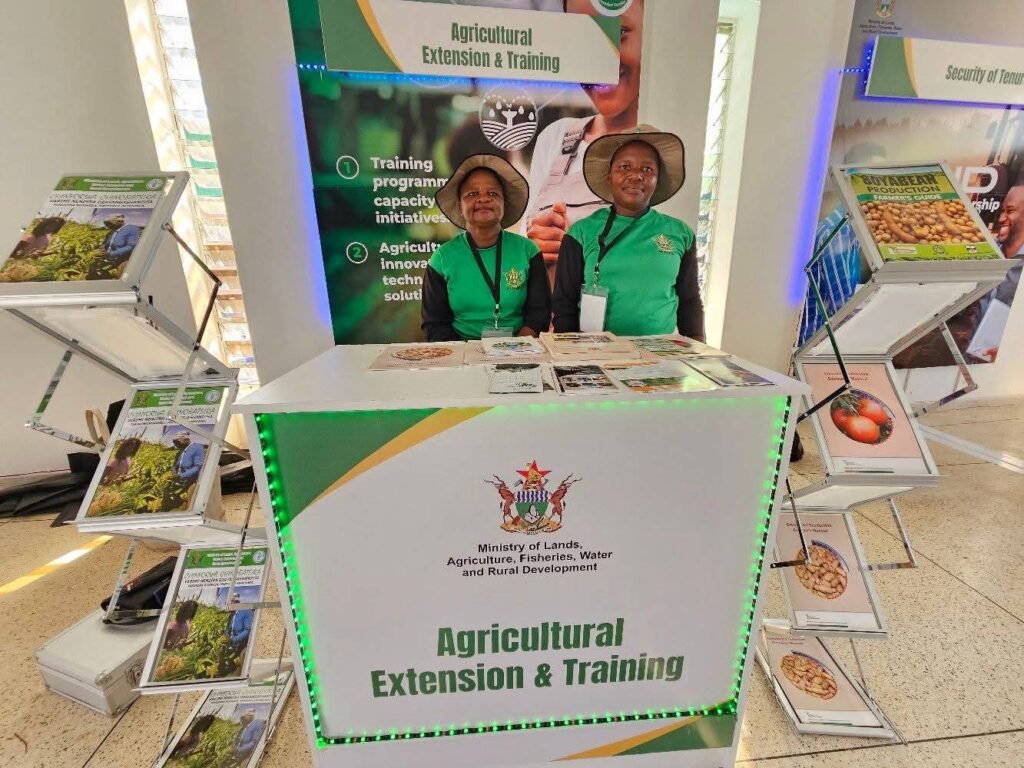
Zimbabwe’s ministry of Lands, Agriculture, Fisheries, Water and Rural Development is exhibiting at ZITF 2025.
Climate resilience
Zimbabwe faces challenges like erratic rainfall and land degradation. Smart agriculture promotes climate-resilient practices, such as drought-resistant crops and efficient irrigation, which are critical for sustaining food systems.
The FAO’s participation at ZITF 2025, with side events on climate resilience and natural resource management, underscores this focus.
Enhancing trade and value addition
The theme emphasises trade as a driver of economic growth, encouraging value-added agricultural products to boost exports and generate foreign currency. Past ZITF editions highlighted products like dried mango chips and marula nut products, reflecting a shift toward value addition that the Bulawayo Show is keen on amplifying.
By promoting trade, the Bulawayo Show supports Zimbabwe’s integration into regional markets through initiatives like the Beira Corridor, which facilitates access to global markets via Mozambique. The presence of international exhibitors from 28 countries at ZITF 2025 enhances opportunities for trade synergies.
Empowering youths and women
The theme aligns with inclusive development by targeting youths and women, key demographics in Zimbabwe’s agricultural sector.
Smart agriculture offers opportunities for tech-savvy young farmers to embrace modern practices.
Room for improvement
While the Bulawayo Show and its theme hold immense potential, challenges like limited digital infrastructure (e.g., lack of free wi-fi at past ZITF events) and accessibility issues for international visitors (e.g., difficulty locating ministry stands) have hindered impact over the years. Stakeholders should invest in digital public infrastructure — or else the Bulawayo Show and the ZITF will be consigned to the Stone Age.
The Bulawayo Agricultural Society and the Zimbabwe International Trade Fair have to work together to provide free wi-fi and better signage to enhance accessibility for exhibitors and visitors.
For enhanced stakeholder co-ordination, the organisers should centralise ministry stands and ensure clear communication channels to facilitate meaningful engagements.
To promote inclusivity, the organisers can offer subsidised participation for small-scale farmers and youth-led start-ups to broaden impact. A lot is already being done to cultivate broad-based participation, but much more needs to be done. Zimbabwe is an agrarian country and such high-profile expositions must reflect this reality.–Staff Writer.
